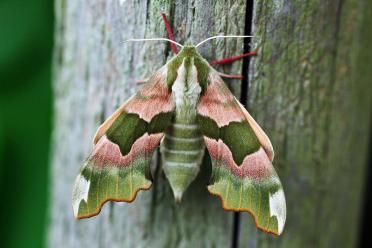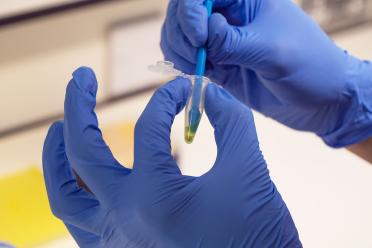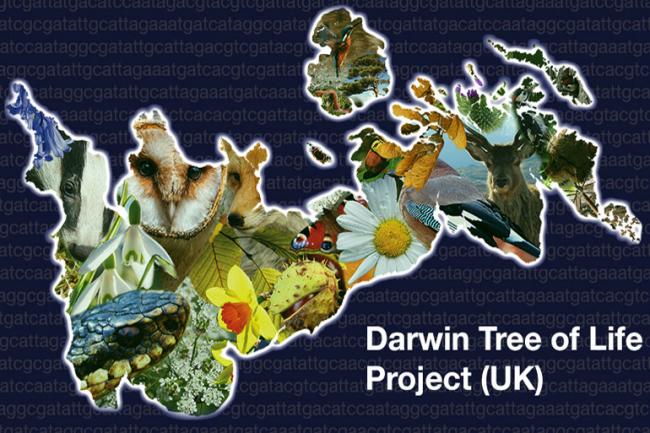The Darwin Tree of Life project, a collaboration between ten leading research organisations and funded by Wellcome, combines expertise across biodiversity, genomics and DNA analysis. The project will be one of 16 exhibits on show to the public during the 2022 Royal Society Summer Science Exhibition
From Wednesday 6 July to Sunday 10 July 2022, visitors to the Royal Society in London will have the opportunity to meet world-leading researchers and discover cutting-edge science through a range of interactive experiences, activities and workshops.
The Darwin Tree of Life project aims to understand how the diversity of life on Earth evolved, explore the biology of organisms and ecosystems, aid conservation efforts, and provide new tools for medicine and biotechnology. It is one of several initiatives across the globe working towards the ultimate goal of sequencing all complex life on Earth, in a venture known as the Earth BioGenome Project.
The Darwin Tree of Life project is a collaboration between the Earlham Institute, EMBL-EBI, Marine Biological Association, Natural History Museum, Royal Botanic Garden Edinburgh, Royal Botanic Garden Kew, and the Wellcome Sanger Institute, along with teams at the Universities of Cambridge, Edinburgh and Oxford.
Professor Mark Blaxter, Programme Lead for the Tree of Life programme at the Wellcome Sanger Institute, said: “All of us are connected by the common thread of our shared DNA, and DNA connects us to all life.
“The Darwin Tree of Life project aims to decode the DNA of all species in Britain and Ireland, and to use this to trace the connections between species - looking back through evolutionary time at the tree of life, investigating ecological webs in the present day and predicting the future of life on our planet. In the process, we will better understand ourselves.
“We want to connect everybody to the excitement we feel about genomics and the future it promises, exploring where we have come from, how we are inextricably interlinked today, and where we might go in the future. We are looking forward to an open conversation about how genomic knowledge can help us start to tackle some of the biggest problems facing our societies and the natural world today.”
Professor Neil Hall, Director of the Earlham Institute, said: “This is an opportunity to find out about one of the biggest sequencing projects in the world and hear from the women and men leading the work. Based around the UK, they’re studying anything from microbes in pond water through to golden eagles.
“Cataloguing genomes is crucial to understanding how sequences of DNA have given rise to the incredible diversity of life on Earth. Ultimately, it’ll transform our understanding of biology and evolution, help us to better protect biodiversity, and potentially generate new and unforeseen benefits for society, such as technology or even medicines.”
During the Summer Science Exhibition, visitors will be able to meet the researchers involved and discover some of the work involved in what might be the largest biology project since the Human Genome Project.
A live-streamed session, featuring interviews and demonstrations, will be broadcast directly from the Royal Society on Saturday 9th July to allow virtual attendees to experience some of the science on show.






